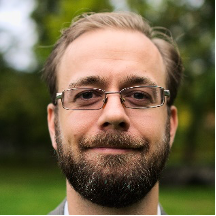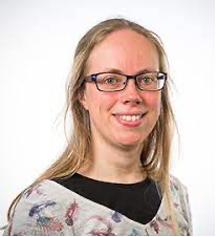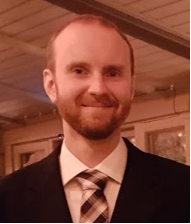Tutorial 02
Indoor Localization using Magnetic-Fields
Abstract
The earth's magnetic-field is a highly informative source for localization. It is omnipresent and variations in the field, if measured accurately, provide a fingerprint highly correlated to the measurement location. Hence, it constitutes a viable and robust source for localization in GNSS denied environments. Still, the full potential of magnetic-field localization remains largely unexploited in practice. This tutorial aims to make the concept of magnetic-field localization more accessible for researchers and practitioners in the field.
This tutorial provides an overview of how magnetic-fields, together with contemporary sensing and information fusion technologies, can be used to enable scalable, accurate, and robust indoor localization solutions. The tutorial comprises 4 lectures from skilled researchers and lectures within the field, extending the general magnetic-field localization concepts, with the special topics of magnetic-field odometry, magneto-inductive localization, and magnetic-field based simultaneous localization and mapping (SLAM). These lectures are complemented with demonstrations illustrating key concepts.
Keywords
magnetic-field localization, SLAM, sensor fusion, odometry, magneto-inductive localization
Tutors

Gustaf Hendeby received his M.Sc. degree in Applied Physics and Electrical Engineering and his Ph.D. degree in Automatic Control both from Linköping University, Linköping., Sweden, in 2002 and 2008, respectively. He is an Associate Professor and Docent in the division of Automatic Control, Department of Electrical Engineering, Linköping University. He worked as Senior Researcher with the German Research Center for Artificial Intelligence (DFKI) 2009-2011, and Senior Scientist with Swedish Defense Research Agency (FOI) and held an Adjunct Associate Professor position with Linköping University 2011-2015. His main research interests are stochastic signal processing and sensor fusion with applications to nonlinear problems, target tracking, and simultaneous localization and mapping.

Manon Kok received the M.Sc. degrees in Applied Physics and in Philosophy of Science, Technology and Society, both from the University of Twente, Enschede, The Netherlands, in 2009 and 2007, respectively, and the Ph.D. degree in Automatic Control from Linköping University, Sweden, in 2017. From 2009 to 2011, she was a Research Engineer with Xsens Technologies. From 2017 to 2018, she was a Postdoctoral with the Computational and Biological Learning Laboratory, Machine Learning Group, University of Cambridge, U.K. She is currently Assistant Professor with the Delft Center for Systems and Control, Delft University of Technology, the Netherlands. Her research interests include probabilistic inference for sensor fusion, signal processing, and machine learning.

Isaac Skog received the Ph.D. degree in Signal Processing with a thesis on low-cost navigation systems in 2010, and the Docent degree in Signal Processing from the KTH Royal Institute of Technology in 2015. In 2009, he spent five months at the Mobile Multi-Sensor System Research Team, University of Calgary, Canada, as a Visiting Scholar. In 2011, he spent four months at the Indian Institute of Science (IISc), Bengaluru, India, as a Visiting Scholar. In Fall 2017, he joined the Automatic Control Group, Linköping University. He was a recipient of the Best Survey Paper Award by the IEEE Intelligent Transportation Systems Society for the article "In-Car Positioning and Navigation Technologies - A Survey" in 2013.

Johan Wahlström received the B.Sc., M.Sc., and Ph.D. degrees from the KTH Royal Institute of Technology, Stockholm, Sweden, in 2013, 2014, and 2017, respectively. From 2018 to 2020, he was a Postdoctoral Researcher with the University of Oxford. In 2015, he spent one month at the University of Porto and six months at Washington University in St. Louis as a Visiting Ph.D. Student. In 2016, he spent two months at MIT-startup Cambridge Mobile Telematics Inc. He is currently a Lecturer in data science with the University of Exeter. He was accepted into the Program of Excellence in Electrical Engineering at KTH in 2014. He was a youngest recipient of the Sweden–America Foundation's Research Scholarship in 2015.